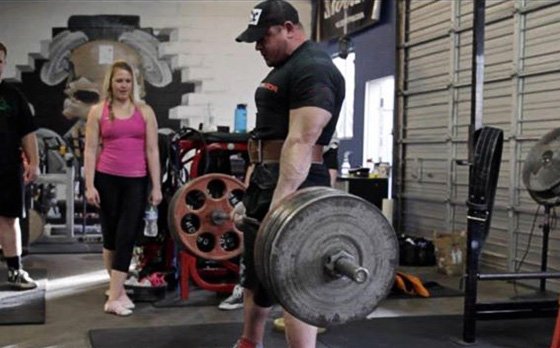Can I maintain my strength and my weight on a low-carb diet?
After losing about 50 pounds using The Paleo Diet by Robb Wolf, I decided to prepare for a powerlifting competition by bloating myself back up to 295. During the competition, I took a tragic tumble with a 1,085-pound load, which led to a realization: There was no getting around it or my gut: I was fat, and the extra weight wasn't doing anything to help my lifts. Something needed to change.
I decided to try a low-carb diet. Low-carb diets are supposed to work in part by decreasing insulin levels, which can help the body burn stored fat for energy. If the diet works correctly, your body should be in a near-constant state of fat burning, which can be an effective way to lose weight. It definitely worked for me.
There are multiple low-carb diet plans out there; I tried both Carb Nite and Carb Back-Loading. These approaches pretty much eliminate carbohydrates until specified periods of the day. Although I had success using them, there are a couple things I learned:
Bell's Guide to Cutting Carbs
Watch The Video - 12:24
Carb Nite
After I talked to nutrition expert and creator of the Carb Nite Solution, John Kiefer, and powerlifting coach Jesse "Megamind" Burdick, I decided to try the Carb Nite method. How does the diet work? For six days of the week, you eat ultra low-carb. Then on Sunday night, from about 7 p.m. until you go to bed, you can pretty much eat whatever you want, including sugary food like donuts and ice cream.
Carb Nite works by keeping your body in a fat-burning state for the majority of the week. Then, because you're so sensitized to any insulin release, the rush of carbs and sugar on Sunday gets used more efficiently. This means more glucose in your muscles, where it belongs, and less chub around your waist. If you pack around some extra weight, and it hinders your goals, Carb Nite is a good choice.

Keep in mind however, that with weight loss usually comes some strength loss. Unless you've never trained before, or you're coming off of an injury, you'll get weaker as you get leaner. Losing weight means you lose those leverages. But, the weight will come back over time in the form of muscle as long as you continue to train.
Being smaller does offer some advantages. You'll find that when you lose some weight, your mobility should improve. This will help you get into better positions for lifts or allow you to incorporate new exercises like pull-ups. If your long-term goal is increased strength, then it might be beneficial to lose weight before you bulk up with muscle.
Carb Back-Loading
I used this method after I had cycled through Carb Nite for a few months and wanted to put on some more muscle. Carbohydrate Back-Loading is a diet where you eat carbohydrates on the backside, or at the end of the day. The first part of the day is spent in a ketogenic state—no carbs allowed. After an evening workout and a protein shake comes the flood of carbohydrates. The glycogen helps your muscles repair and will keep your body from being catabolic as you sleep.
Don't go crazy and eat a donut or two every night. Try to keep your carbs clean. Instead of pizza and Pop-Tarts, try sweet potatoes and rice. I realize that most of us like to eat—that's part of the reason we bust our ass in the gym so often. Enjoy pizza, donuts, or Pop-Tarts—just don't overeat them.

Low-Carb Diets and Performance
When it comes to performance, you can't go without any macronutrient. If you're a CrossFitter, or you play a sport, or are a powerlifter or strongman, ultra low-carb diets may not be for you. Unless you're looking to perform on a bodybuilding stage, your body will need adequate amounts all three macronutrients to stay in high gear. Bodybuilders have perfected the art of using a diet for a short amount of time to create a specific look.
So, if you're in the game to get bigger, stronger, and faster, carb cutting may not be the best choice. If your main goal is fat loss, and you want to look like you train, then try pulling some carbs out of your diet.
All told, low-carb diets have upsides and downsides. My low-carb diets have helped me lean down; I look better and I feel better. But, if you go ultra low-carb, you'll probably lose some of your strength. Give one a shot (or not) and let me know how it goes in the comments section below!
